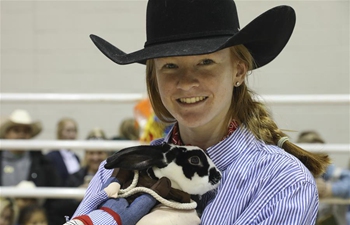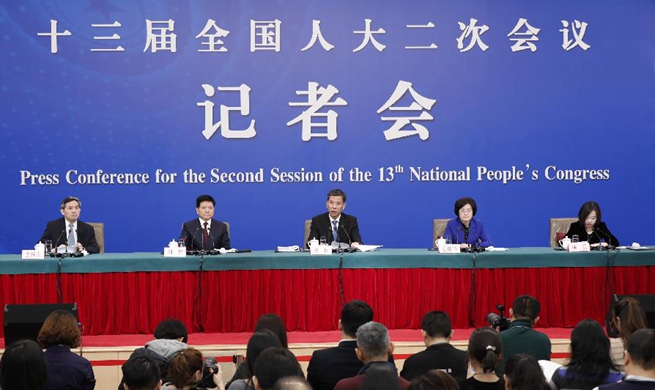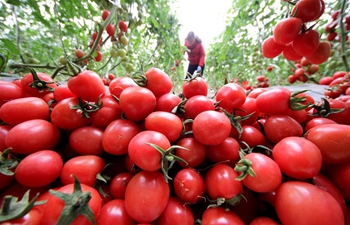LONDON, March 6 (Xinhua) -- Due to a lack of new entrants, concerns about the long-term supply of farmers, known as crofters, on islands off Scotland have grown as a possible Brexit nears.
The House of Commons Scottish Affairs Committee traveled to the Isle of Lewis in the Outer Hebrides, 850 km from London, to meet crofters and local communities to discuss issues facing the remote Scottish islands.
The committee's report said that three reasons led to the lack of new entrants in the sector: "schools not promoting crofting to students as a form of future employment, the high-cost of purchasing and managing croft tenancies and the lack of agricultural support funding for less favored areas."
Residents on Lewis with a population of 18,500 highlighted the importance of crofting as the lifeblood of island communities in Scotland.
Crofting supports over 17,000 jobs across the Highlands and Islands of Scotland and provides important cultural, social and environmental benefits.
"There was concern that post-Brexit tariffs between the UK and EU could pose a threat to the sector's sheep and cattle trade, with EU third country tariffs averaging 47 percent for certain types of lamb and 50 percent for beef," the report also said.
The islanders called for an independent review of crofting which could make recommendations to the government on steps to support crofters.
Westminster politician Pete Wishart who chairs the committee, said: "The committee's visit not only revealed the historic significance of crofting to the Isle of Lewis but also highlighted the importance of crofting as the lifeblood of island communities."
There were also calls for the creation of a Croft housing scheme which could provide grants to crofters to help them purchase or build their own house near their crofts.













